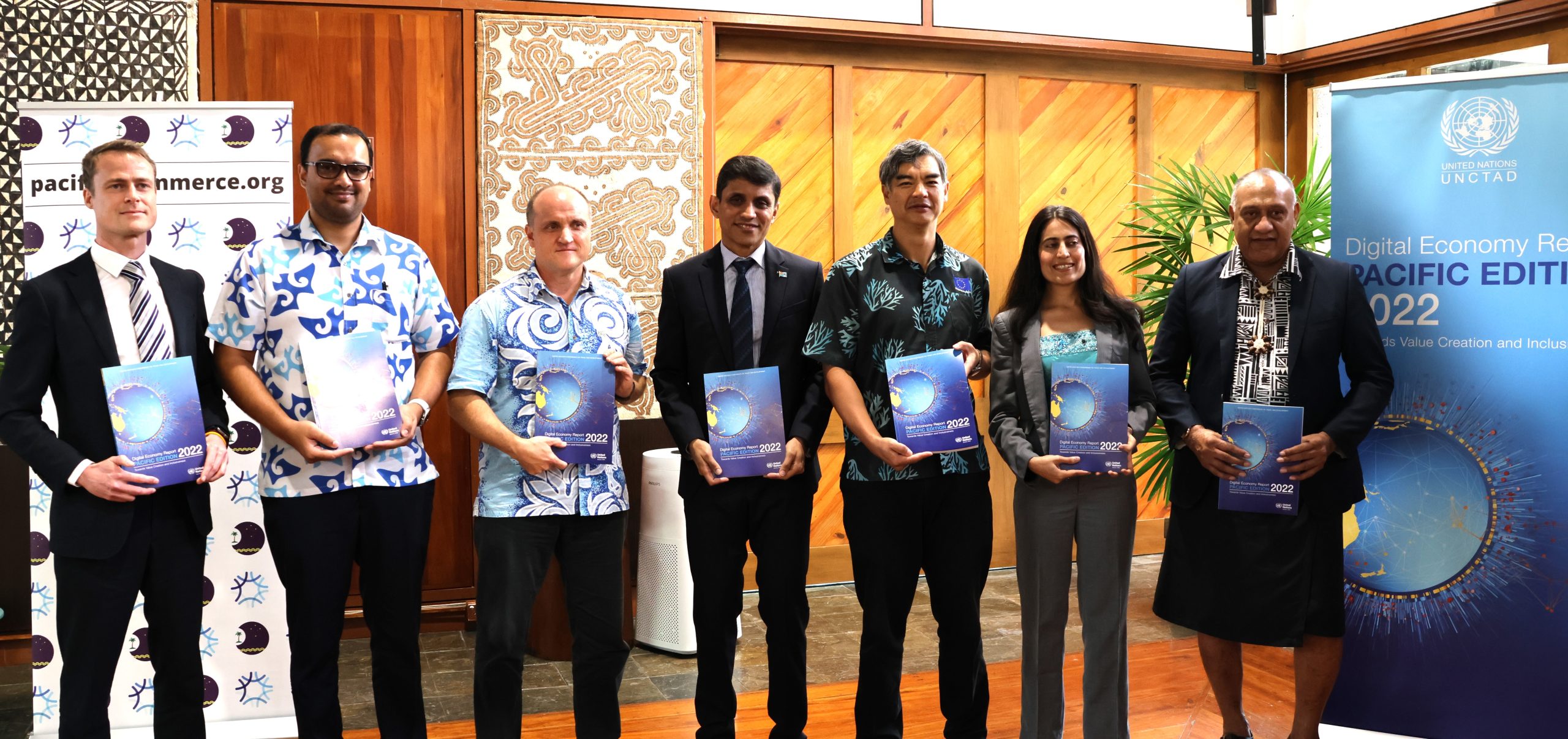The Digital Economy Report: Pacific Edition of 2022 was launched on 16 February at a regional event hosted by the Pacific Islands Forum.
The report offers new research and data on the digital economy and focuses on the development and policy implications of digital transformation in the Pacific.
More than 200 policymakers and private sector representatives gathered to discuss how digital technologies can lead to higher standards of living in the Pacific through job creation, higher incomes and more trade.
Acting Secretary General of the Pacific Islands Forum, Dr Filimon Manoni, welcomed the report, saying “its findings are a timely fit for the Pacific’s 2050 strategy and will inform partners and members on how to perform effective policymaking, development programming and regional cooperation initiatives in the area of e-commerce and digital transformation.”
“This is the first in-depth research report on the digital economy in the Pacific region,” said Rebeca Grynspan, Secretary-General of the UN Conference on Trade and Development (UNCTAD). “Inclusion should be placed at the centre of the digital development agenda in the Pacific. All people, businesses, communities and countries should benefit from the digital economy. “The report sets out the digital challenges facing the region due to the geographical location, remoteness from the main market, high cost of doing business, small market and population makes the Pacific less attractive for international investment and global digital platforms to operate.
Shaheen Ali, Permanent Secretary for the Ministry of Trade, Cooperatives, Small and Medium Enterprises highlighted that due to the abovementioned challenges, the Pacific could be left behind, “The digital divide between developed and developing countries is significant and is widening. It is critical that we work together to bridge this gap”.
Despite the challenges, digital technologies have much to offer the region.
“In Pacific countries, digital platforms can provide opportunities to expand access to local, regional and international markets,” said Neha Mehta, Pacific regional lead for the UN Capital Development Fund (UNCDF) in Fiji. “This is especially important for women, youth and other marginalised groups. UNCDF is committed to ensuring inclusive digital economies that leave no one behind, and this report will support those efforts.” The report recommends actions that policymakers should take to address the challenges in the region and to place inclusion at the centre of digital development.
It says Pacific nations need to adapt policies and regulations to the digital age. Trade agreements and consumer protection laws, for example, rarely consider complexities associated with doing business online. Yet, the digital economy is about more than that, it’s about human and people development as well as connectivity and technology.
Sujiro Seam, Ambassador and Head of the Delegation of the European Union for the Pacific remarked, “In the Blue Pacific Continent 2050 Strategy the Pacific has priorities such as resources and economic development, peoples centered development, connectivity and technology- the digital economy speaks to all of these priorities and, as you know, the digital revolution is also at the heart of the European Union.”
Regional partnerships
The report was published by UNCTAD in partnership with UNCDF. The publication of the report supports the implementation of the Pacific Regional E-commerce Strategy and Roadmap, endorsed by Forum Trade Ministers in 2021 and coordinated by the Pacific Islands Forum.
John Williams, Australia’s Chargé d’affaires to Fiji said Australia is delighted to support the development of the first Pacific edition of UNCTAD’s flagship Digital Economy Report.
“This report will help guide policymakers as they grapple with the development and policy implications of the digital economy,” he said. “I am especially grateful to see the spirit of partnership between Governments and development partners in the region working on e-commerce and the digital economy.”
A launch event for the report will also take place today in Geneva.
SOURCE: PIFS/PACNEWS















